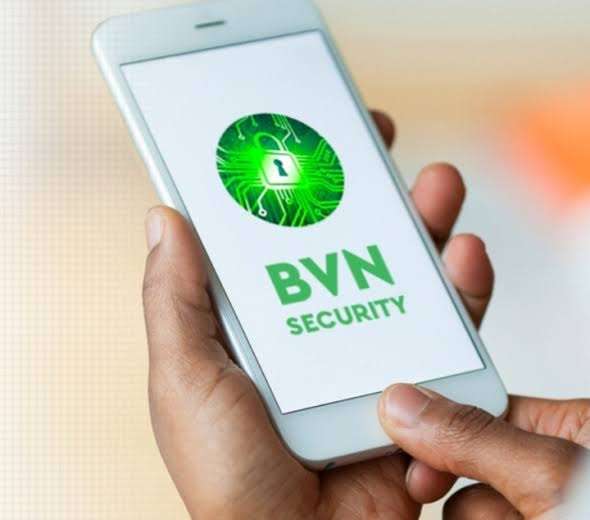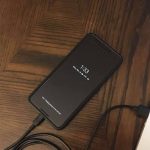The Bank Verification Number (BVN) is a critical identity management tool introduced by the Central Bank of Nigeria (CBN) to curb fraud, verify customer identities, and ensure transparency across banking services.
However, getting your BVN blacklisted, whether due to unpaid loans, suspected fraud, or identity discrepancies, can be devastating. It may block access to your bank accounts, mobile loans, fintech services, or even job opportunities in the financial sector.
If you’ve received a notification that your BVN is blacklisted, it’s crucial to act fast, understand the reason, and follow the right steps to resolve it.
In this guide, we explain how to remove your BVN from blacklist in Nigeria, common reasons for blacklisting, and the institutions involved in the process.
What Is a Blacklisted BVN?
A blacklisted BVN refers to a situation where your Bank Verification Number has been flagged by financial institutions or credit reporting agencies as high-risk or problematic. Once blacklisted, your name appears on a watchlist that may affect your ability to open accounts, access loans, or use banking services.
The blacklist status is often reported to the Credit Risk Management System (CRMS) operated by the CBN, or to licensed Credit Bureaus such as CRC Credit Bureau, FirstCentral, or CreditRegistry. Some fintech apps may also restrict access if your BVN is flagged.
Why BVNs Get Blacklisted in Nigeria
There are several reasons why a BVN can be blacklisted in Nigeria, and understanding the root cause will determine how to approach the solution:
- Unpaid Loans: This is the most common reason. If you borrow money from a bank or loan app and fail to repay, your details (including BVN) may be reported to a credit bureau.
- Loan Fraud: Using multiple identities to obtain loans or defaulting on multiple platforms.
- Identity Theft: If your BVN is linked to accounts used for fraudulent or suspicious activities.
- Multiple Loan Defaults: Taking out loans on multiple apps using the same BVN and failing to repay consistently.
- Banking Errors: Sometimes, wrong reporting by a bank or fintech company may falsely flag your BVN.
How to Know If Your BVN Is Blacklisted
If your BVN is blacklisted, you may experience the following:
- Denied access to new loans or banking services
- Rejected account opening applications
- Notifications from loan apps or banks
- Negative credit reports from bureaus
To confirm your status:
- Request your credit report from licensed credit bureaus (e.g., CRC Credit Bureau, FirstCentral, or CreditRegistry).
- Visit your bank and request a report through the CBN Credit Risk Management System (CRMS).
- Use mobile fintech apps that display loan status and creditworthiness.
How to Remove Your BVN from Blacklist in Nigeria – Step-by-Step
Removing your BVN from the blacklist in Nigeria requires a methodical approach depending on the cause of the blacklisting.
1. Obtain Your Credit Report
Start by getting a detailed credit report from a credit bureau. This will show you the financial institutions that reported you, how much you owe, and whether the blacklisting is due to non-payment or something else. You’re entitled to one free report per year under Nigerian law.
2. Settle the Outstanding Debt or Dispute the Claim
If your BVN is blacklisted due to unpaid loans:
- Contact the lender directly (bank or loan app) to negotiate repayment.
- Request a debt settlement plan if you’re unable to pay in full.
- Get a written letter of clearance or settlement confirmation once you’ve paid.
- If the listing is in error, write a formal dispute letter to the credit bureau and the financial institution with evidence.
For wrongful blacklisting (e.g., identity theft or system error), the credit bureau has 30 days to investigate and resolve your complaint.
3. Notify the Credit Bureau or Bank to Update Your Status
Once you have cleared your debt or won your dispute:
- Send the clearance letter or supporting documents to the credit bureau and your bank.
- Request an update to your credit profile and removal from the blacklist.
- Follow up after 10–15 working days to ensure the update reflects.
Note: It may take up to 30 days for the changes to appear across all systems, including CBN’s CRMS.
4. Monitor Your BVN and Credit Profile Regularly
To avoid being blacklisted again:
- Monitor your credit score regularly.
- Avoid borrowing from multiple platforms at once.
- Ensure timely repayment of loans.
- Secure your BVN and never share it with unverified platforms.
Many fintech apps now offer in-app credit score tracking. Use this feature to stay informed.
Can You Remove Your BVN from Blacklist Without Paying?
Generally, no. If your BVN was blacklisted due to genuine debt, you’ll need to settle the loan before removal. However, if you were blacklisted wrongly (e.g., identity theft or error), you can dispute the listing without payment, and it will be removed upon verification.
Institutions That Can Help
If you’re facing delays or your requests are being ignored, you can escalate to:
- Central Bank of Nigeria (CBN)
- Federal Competition and Consumer Protection Commission (FCCPC)
- Nigerian Data Protection Commission (NDPC) for BVN misuse
- Legal Aid Council for free legal advice
These bodies can mediate disputes and ensure consumer rights are upheld.
Frequently Asked Questions (FAQs)
What does it mean to have my BVN blacklisted in Nigeria?
It means your identity has been flagged for financial risk, limiting access to credit, banking services, and even fintech platforms.
Can I still use my bank account if my BVN is blacklisted?
You may face restrictions or monitoring, especially if the blacklisting is fraud-related.
How long does it take to remove a BVN from the blacklist?
Once resolved, removal can take 15 to 30 working days, depending on the institution.
Is it illegal to be blacklisted?
No, but failure to resolve it could affect your financial profile and opportunities.
Can loan apps blacklist my BVN?
Yes. Loan apps can report your BVN to credit bureaus or CRMS, which can lead to blacklisting.





